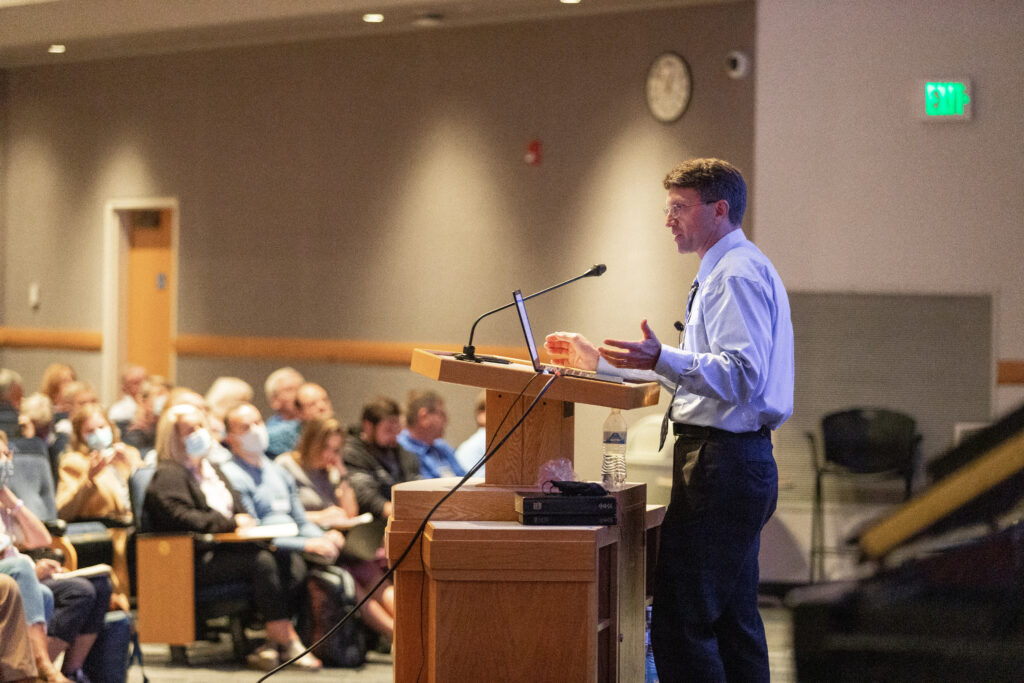By Carly Wasserlein

Editor’s note: Education Week coverage can be found in this section of the website.
BYU ancient scripture professor Kerry Muhlestein advised Education Week attendees on Thursday to be “covenant conscious.”
Muhlestein, who specializes in Egyptology and Near Eastern history, said the gathering of Israel is one of the key elements of the Book of Mormon, but members of the Church often do not recognize their role as members of the house of Israel.
“The gathering of Israel is part of the process of the second coming of the Lord,” Muhlestein said. “In President Nelson’s opinion, if we were to ask God and Christ what the most important aspect of the Book of Mormon is, it’s the gathering of Israel for the preparation of the second coming.”
Muhlestein affirmed that all members of the Church need to be more aware of their place in the house of Israel, teaching that anyone willing to make covenants with God was a member of the house of Israel and the only way to truly join is by entering into the covenant.
“The house of Israel is exclusive in one way,” Muhlestein said. “You can self-exclude. You can decide, ‘I will not join.’ That’s the only way to be excluded.”
Muhlestein taught that the reason the lost tribes of Israel were scattered is because they began to neglect their identity.
“They were alway so prone to act like everyone else that when they weren’t at home tied to the covenant land, they just became everyone else,” Muhlestein said. “It’s not that they were so far away they didn’t geographically know how to get home; they weren’t geographically lost. They had lost their covenant identity.”
Muhlestein emphasized that as the descendants of Israel, members of the Church likely have their same tendencies.
“What they struggle with is what we struggle with,” Muhlestein said. “I do believe that is our biggest problem today.”




